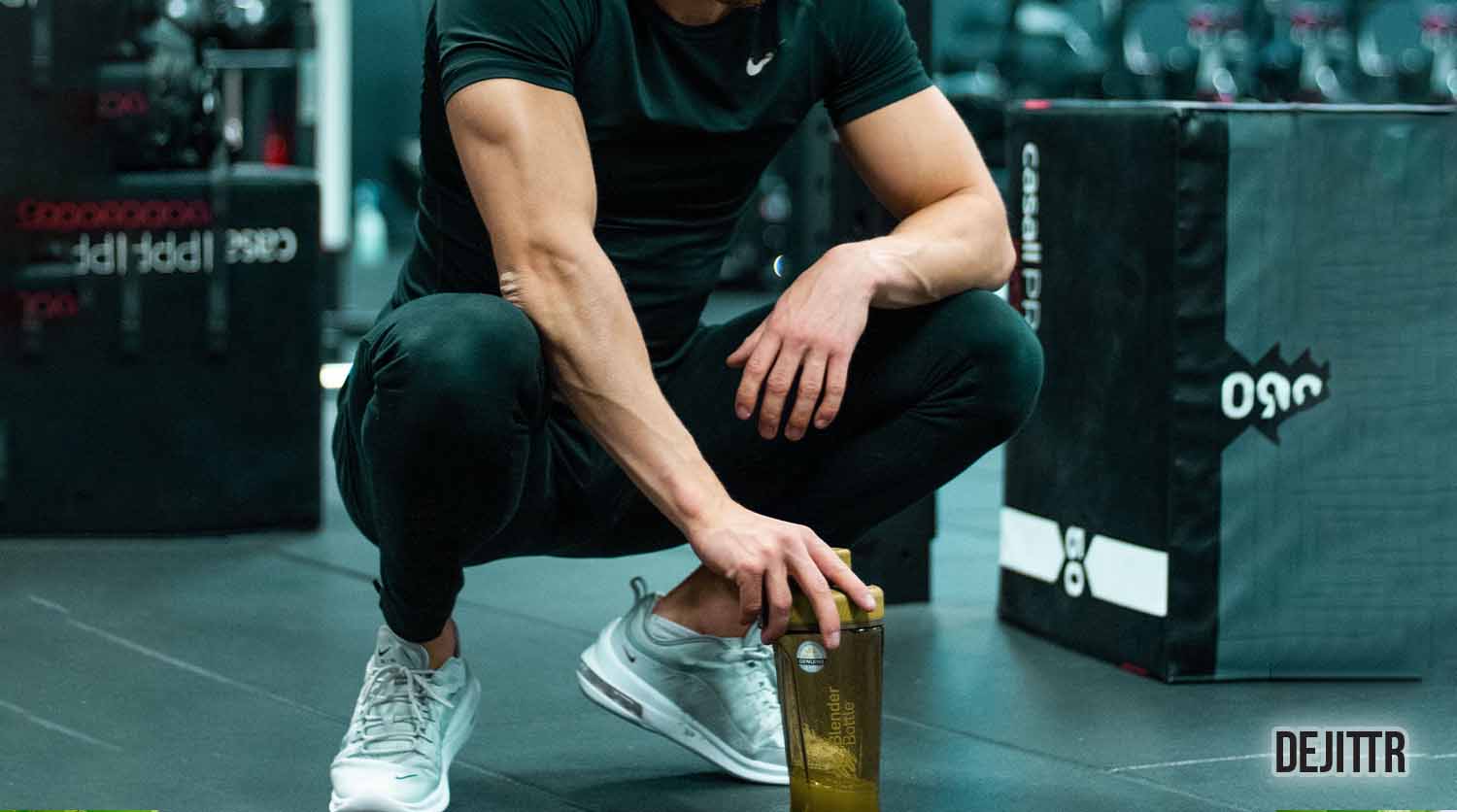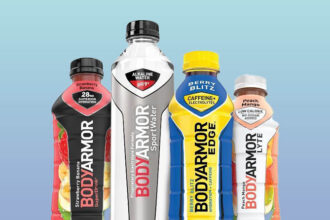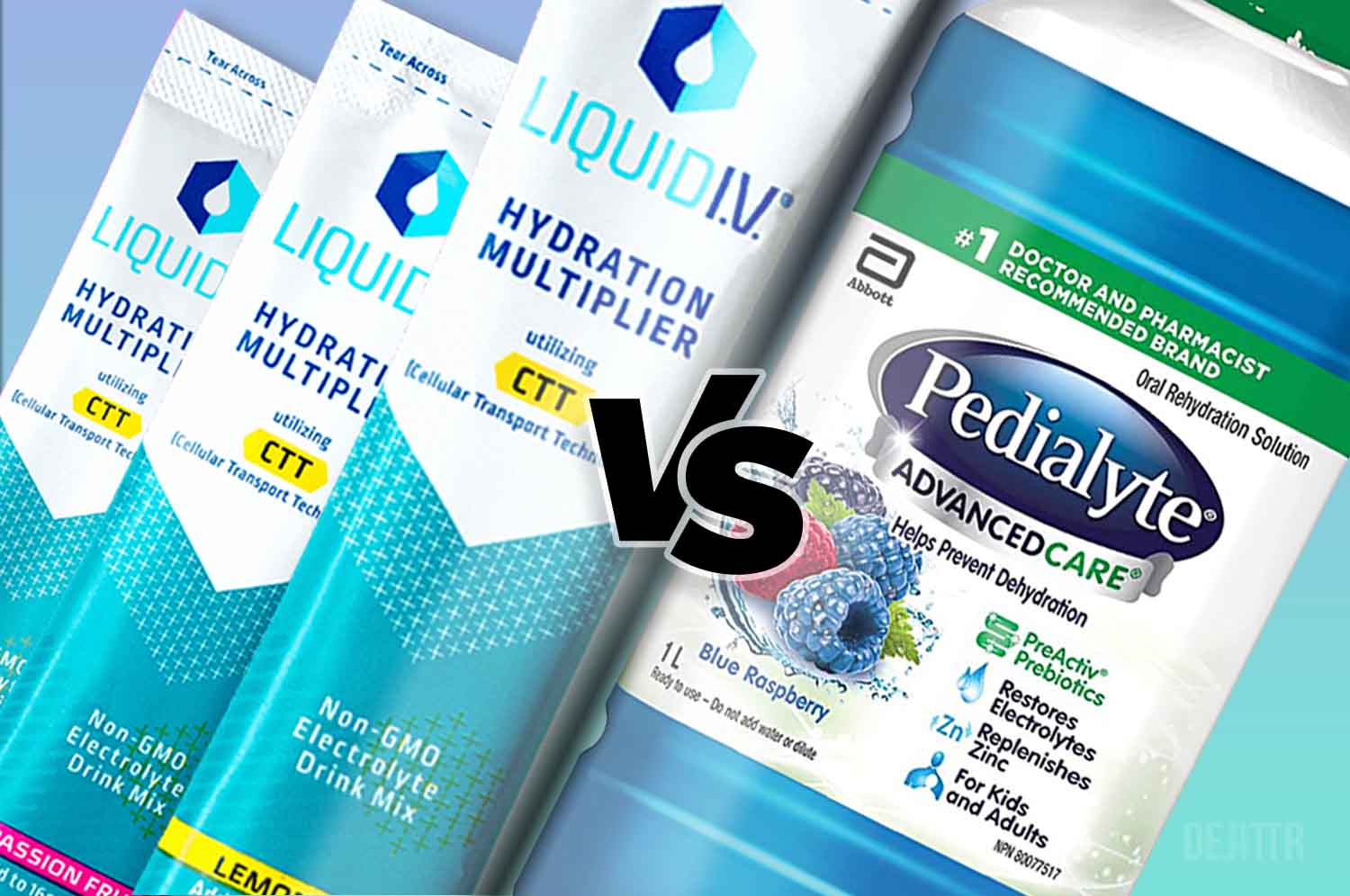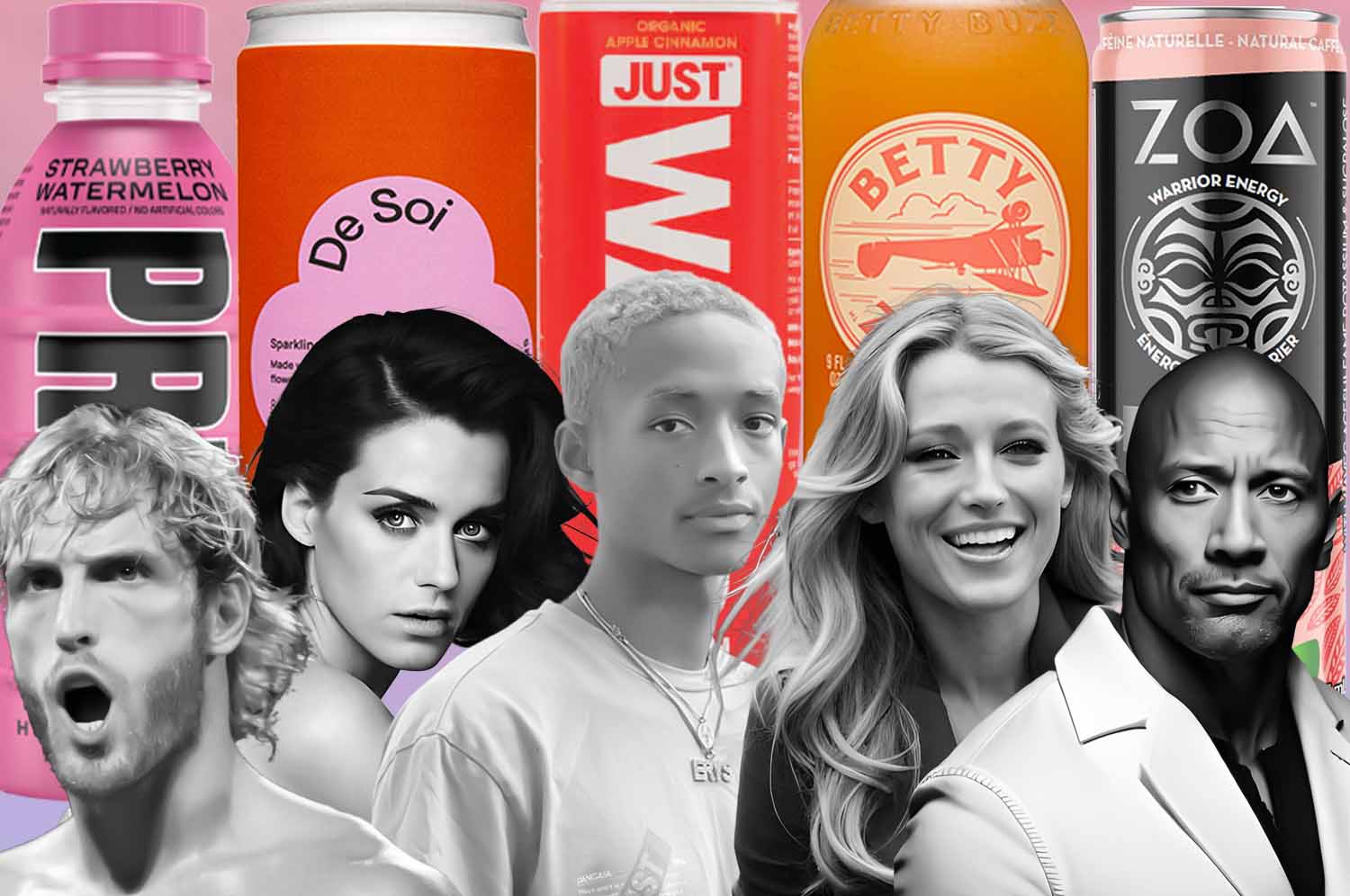In recent years, isotonic drinks have gained in popularity, and now it seems like just about every beverage has an isotonic variant. But what are isotonic drinks? Let’s explore all about it in this guide!
Key Takeaways:
Isotonic drinks are a type of sports drink having similar concentrations of salt, sugar, and fluids as present in the human body. Powerade, Gatorade, and Prime Hydration are some examples of isotonic drinks.
Let’s learn about isotonic drinks and how they differ from other types of drinks, like hypotonic and hypertonic, and more.
Isotonic Drinks Examples
Gatorade: PepsiCo produces the flavored, non-carbonated, isotonic sports drink Gatorade. It is intended for use during physical activity to rehydrate and replace electrolyte, carbohydrate, and fluid levels. It is one of the most popular sports drinks in the US.
Powerade: The Coca-Cola Company developed Powerade, and the company produces and sells Powerade as a sports beverage. It’s an isotonic sports drink, and it helps you rehydrate and restore the carbs and fluids you lose when working out.
Isotonic Drink Overview:
Sports drinks are popular because they are beneficial for a wide variety of people, including those participating in endurance events and those recovering from hangovers.
There is probably not a single store that sells water that does not also stock sports drinks like Powerade and Gatorade.
Sports drink manufacturers have done a great job in the last 50 years of linking their products with the concepts of electrolytes, hydration, and health. Because of this, the typical individual consumes a sports drink in the hopes of improving their hydration and athletic performance.
While that’s mostly true, “isotonic water” is a far more realistic way to describe drinks like Gatorade and Powerade. In reality, isotonic water is the backbone of these well-liked sports beverages.
As far back as the 1970s, athletes, especially long-distance runners, were told they shouldn’t stop drinking water while working out.
Runners were thought to slow down if they drank water, a common concept at the time. Now at the same time, researchers at the University of Florida were formulating a beverage for the Florida Gators football team.
The Gators’ coach saw his team’s energy fading as the game progressed. The coach addressed this by mandating that the team consume an isotonic liquid called Gatorade before, during, and after each game.
The Gators beat Georgia Tech in the Orange Bowl that year while experimenting with Gatorade. Gatorade, and by extension isotonic water, got its start thanks to the team’s success, a lucrative contract with the NFL, and a licensing arrangement.
Gatorade is usually credited for popularizing the concept of the sports drink, even though other groups were doing identical hydration studies at the same time and even earlier.
What Are Isotonic Drinks Good For?
Intense physical activity, like weight training, cycling, sports, etc., produces muscle glycogen depletion and exhaustion. Isotonic beverages enhance physical endurance, keeping you going longer while performing those activities.
Benefits Of Isotonic Drinks At A Glance:
- Rich source of glucose & electrolytes
- Enhances hydration
- Improves Endurance
Isotonic beverages are beneficial because the glycogen they contain is quickly turned into glucose and stored in your liver and muscles; this glucose reserve requires less oxygen to burn for fuel production than any other protein or fat.
In just over two hours of intense cardio and weight training, your body’s carbohydrate stores will be drained at a pace of three to four grams per minute.
If you consume an isotonic beverage, your body’s glycogen balance will be restored in a shorter amount of time than the typical 24-48 hours it takes on its own.
Water consumption during exercise or other forms of physical activity may seem like good sense, given how much you sweat, but drinking too much can cause gas and bloat, and water does not provide carbs or electrolytes.
Carbohydrate-rich beverages consumed during exercise slow the rate at which the stomach empties.
Isotonic beverages have the same effect on stomach emptying as water, but they have the added benefits of preventing dehydration by decreasing urine production and encouraging fluid retention.
The abundance of electrolytes in isotonic drinks, such as sodium, potassium, calcium, magnesium, chloride, bicarbonate, phosphate, and sulfate, is the most notable of their many benefits. These electrolytes are essential minerals that aid in maintaining a healthy acid-base balance in human body cells.
Should You Drink Isotonic Drinks?
In short, the advantages of isotonic drinks outweigh the disadvantages. So as long as you consume isotonic drinks in moderation, that should be okay.
| Advantages | Disadvantages |
| Helps replenish the lost fluids | High sugar content present |
| Offers more satisfaction than simple water | |
| A good source of glucose |
Most of us have a basic instinct to drink water while working up a sweat. However, remember that doing so might induce bloating and won’t aid in replacing lost electrolytes and carbs.
The ideal isotonic beverages include carbs and electrolytes to reduce stomach emptying and eliminate the need to urinate, thereby making them ideal for maintaining hydration for extended periods.
Isotonic drinks are particularly beneficial to athletes because they include carbohydrates in the form of glycogen, converted into glucose, and stored in muscle.
Products low in carbohydrates are useful as hydration aids. Rehydrating with water before, during, and after a workout is crucial.
However, there are occasions when being near water becomes monotonous and uninteresting. Isotonic beverages provide a refreshing alternative to water. As a bonus, it has a subtle flavor that leaves you feeling full for a while.
Now, isotonic drinks also have one downside. They have high sugar content, so it’s important for athletes or anyone who wants to keep a check on how much of these drinks they consume.
Consuming these beverages regularly might lead to weight gain due to the high sugar content.
Is There Any Natural Isotonic Drink?
Coconut water is a natural source of isotonic drink that helps hydrate your body. It is a low-calorie and fat-free drink that contains over 90% of water.
The transparent fluid contained inside coconuts is called coconut water, whereas coconut milk is made by combining coconut water with shredded coconut.
Coconut water has minimal sugar and calories and a mildly sweet, nutty taste. However, it also contains electrolytes like potassium, sodium, and magnesium, which are great for making up for any nutrients you may have lost.
If you’re thirsty, try some coconut water instead of a typical sports drink. The popular drink is a natural source of vitamins and minerals that can help you stay hydrated.
We also encourage you to read our guide on the difference between Gatorade and Coconut Water.
Is Lemonade An Isotonic Drink?
Lemonade is not an isotonic drink because it has a higher concentration than a typical isotonic drink. Hence, fruit juices like lemonade are classified as hypertonic drinks, along with soft drinks and sports drinks.
A good way to identify whether a drink is isotonic or not is by considering its particulate concentration. For an isotonic drink, the drink should have an osmolarity (concentration of the solution) of 270-330 mOsml/liter.
But remember that lemon juice and lemonade are two different things. Here by lemonade, we are referring to the drink prepared by mixing lemon juice, water, and sugar.
Although lemonade is usually considered a hypertonic drink, you can use lemon juice (extracted from lemon) for making some of the isotonic drinks.
How To Make My Own Isotonic Drink?
The easiest way to make your own isotonic drink is to take one liter of warm water in a jug and add 40-80 grams of sugar to it. Moreover, for flavoring and better taste, you can add a quarter tsp of salt and a sugar-free squash.
Apart from the one we shared above, there are various ways to make an isotonic drink. So choose the one from the following recipes as per your wish and enjoy the drink.
#1. Homemade Recipe
- Take 800 ml water in a jug.
- Add 200 ml squash to it.
- And also, add a quarter tsp salt to the solution.
#2. Homemade Recipe
- Take two cups of water.
- A quarter cup of lemon juice and half a cup of strawberries.
- Also, take some Himalayan salt (slightly like one pinch).
- You can also have one or two tablespoons of natural honey for taste.
- Mix all the ingredients in a blender until they become smooth enough for drinking.
#3. Homemade Recipe
- Take two or three cups of water.
- Get some Himalayan salt (a pinch) in a small container.
- Also, consider having lemon juice and fresh mint leaves.
- Finally, take two or three tablespoons of honey and mix all the ingredients.
#4. Homemade Recipe
- Take 500 ml of water in a glass or jug.
- Add 500 ml of fruit squash to it.
- Then, add a quarter teaspoon of salt to the mixture.
#5. Homemade Recipe
- Take two cups of water and one cup of coconut water.
- Also, take a quarter teaspoon of Himalayan salt.
- Then, take a quarter cup of lemon juice and half a cup of freshly squeezed half a cup of pomegranate juice.
- Finally, mix all these ingredients and enjoy your drink.
So this is how you can prepare some of the isotonic drinks in your home. The water in these drinks takes care of hydration.
The salt added in these isotonic drink recipes help restore and maintain the electrolyte balance in the body. And the fruit extracts add those necessary vitamins and minerals to fuel our energy levels and make us feel refreshed.
We highly recommend checking out our DIY natural energy drink recipe if you are looking for some natural ways to make energy drinks.
Hypotonic Vs. Hypertonic Vs. Isotonic Drinks
| Hypotonic Drinks: | Hypertonic Drinks: | Isotonic Drinks: |
| < 275 mOsmol kg ⁻¹ | > 300 mOsmol kg ⁻¹ | 275–300 mOsmol kg ⁻¹ |
| Simple carbs, water, and electrolytes are relatively lower than that in human blood. | Simple carbs, water, and electrolytes are relatively higher than that in human blood. | Similar simple carbs, water, and electrolytes than that in the human blood. |
| Usually taken before or during the training or games | Preferable for consumption after an intense activity | Suitable for consumption at any time around an activity |
| Doesn’t leave you with a heavy stomach | It might leave you feeling heavy | It takes time to enter the blood |
| Hydralyte Sports, Powerade Zero, and Nuun Electrolytes are some examples. | Red Bull, Soft Drinks, and Lemonade are some the examples | Gatorade, Staminade, and Maximus are some examples |
A solution is a liquid mixture of two or more parts that is the same throughout. For example, when you mix a solute with a solvent, you make a solution. The amount of solute in a unit volume of a solution is called its concentration.
And the concentration of a solution dictates its osmotic pressure, which is the minimum pressure necessary to prevent a solution from passing through a semipermeable barrier.
Now, there are three groups of solutions- categorized in terms of their concentration.
An isotonic solution has the same osmotic pressure; a hypotonic solution has a relatively lower, while a hypertonic solution has a relatively higher osmotic pressure.
The best way to understand and remember these technical terms is by looking at their prefixes ”iso” means equal, “hypo” means less, whereas the term “hyper” means over.
When it comes to sports drinks, an isotonic drink has the same concentration, or “tonicity,” as our blood. Therefore, the osmolarity of isotonic sports drinks and human blood is the same, indicating the two contain a comparable concentration of water, carbs, sugar, salt, etc.
A study was done regarding the hydration effects of water, hypertonic, hypotonic, and isotonic sports drinks during constant exercise. And this study concluded that the best way to stay hydrated while working out is to continuously sip on a hypotonic carbohydrate-electrolyte drink.
Photo altered by dejittr.com | Photo attribution: Philip Myrtorp













